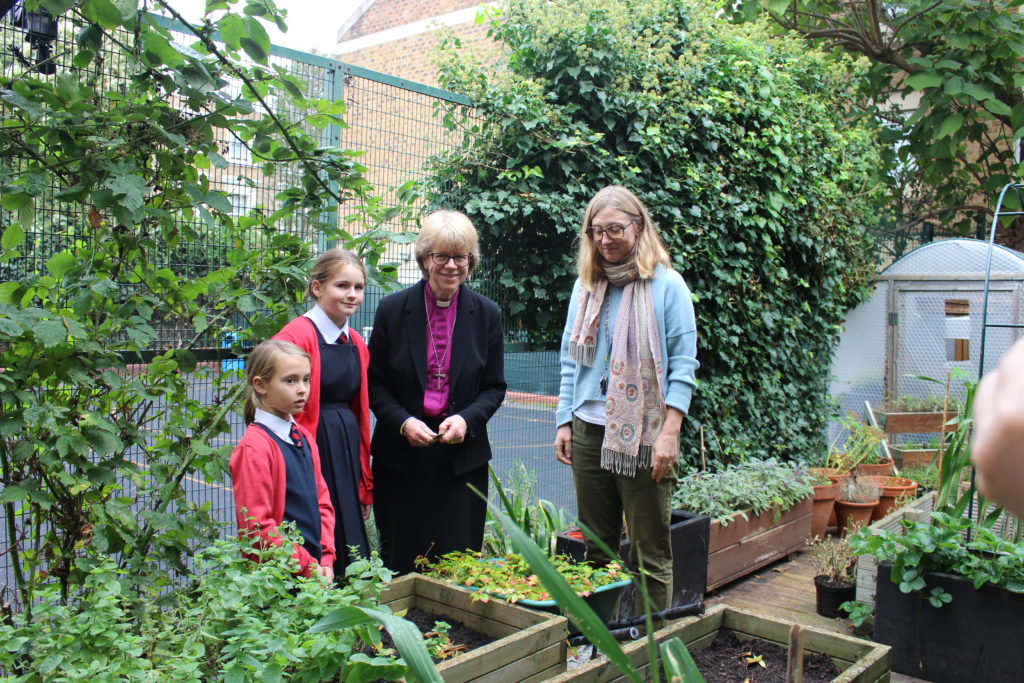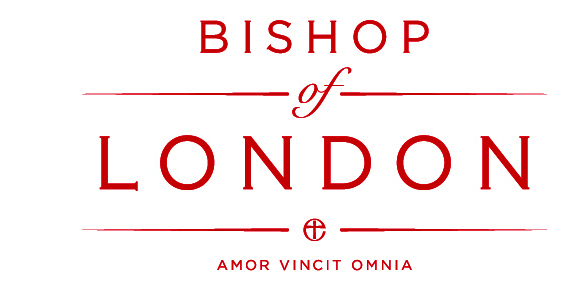
COP 26: A message from the Bishop of London
As world leaders gather in Glasgow for
COP26, the UN climate change conference, we all have the opportunity to
consider how the issues being discussed relate to our own actions and
decisions. That means considering the impact of our personal behaviours and
decisions, but also the effect that organisations and institutions we work with
have.
Christians’ commitment to environmental issues, including global warming and air pollution, is motivated by our faith. It is rooted in two things: care for the creation, and care for all God’s people, which means everyone. And when I say everyone, I mean particularly those individuals and populations who are most vulnerable, and who find it difficult to make their voices heard.
A lot of Christians use the word ‘stewardship’ when we talk about our relationship with creation. We say that we have a responsibility to steward the world’s resources wisely. But there is another way of thinking about our relationship with the world around us. Ruth Valerio is an environmentalist whose book, ‘Saying Yes to Life’ describes beautifully how human beings and the natural world are completely inter-dependent. Ruth suggests that ‘stewardship’ implies some sort of hierarchy: with human beings in charge, treating the rest of the natural world as inanimate objects. She quotes Psalm 24: ‘The earth is the Lord’s, and everything in it, the world, and all who live in it; for he founded it on the seas and established it on the waters’. On this description we are an integral part of creation. Ruth would use words such as nurturing, caring, loving, respecting and cherishing to describe our relationship with the created world.
The UK aims to get to ‘net zero’ – taking out of the atmosphere as much carbon as we put into it – by 2050. The Church of England, and this Diocese, are aiming for net zero 20 years sooner – by 2030. That’s a huge challenge. We all need to contribute to achieving it.
Secular and religious leaders in London are united on this, working with the mayor and local authorities. The environment and climate change – our duty to care of God’s creation – are a key strand in our Compassionate Communities theme, within our Diocese’s 2030 Challenge.
The Church of England has produced a draft Net Zero Strategy. The Diocese intend to respond to this consultation, based on our draft strategy presented to London’s Diocesan Synod in March 2020. Please contact Brian Cuthbertson[mailto:brian.cuthbertson@london.anglican.org] our Head of Environment and Sustainability for details, and with any comments or questions.
There is also much else for us to consider. Buildings are a major contributor to energy use and the resulting greenhouse gas emissions that cause climate change. The Diocese of London has hundreds of buildings – churches and halls, houses, schools – which we must adapt to make more sustainable. In 2019, carbon emissions from our churches were 29.2% down compared to 2005, the first year we measured.
The Diocese has an ethical investment policy. How should this reflect the climate crisis? One option is engagement with fossil fuel companies, to encourage them to reduce their climate impact. In our case that means engagement through the funds we invest in. Others advocate disinvestment from fossil fuels – known as a policy of ‘exclusion’. The National Church of England already has a policy of progressive disinvestment from such companies, when they fail to make necessary changes to their business plans. We should follow this lead and even go further.
The impact of our environmental decisions is clear. Living in the City of London during lockdown, I noticed how we lost the grey haze on our horizon and the city began to breathe. We could say that our health is the air that we breathe: good health makes life so much easier, in the same way that clean air makes it possible to breathe deeply and freely.
How London manages its air pollution problem has a direct impact on the health of Londoners and on the process of climate change. Transport policies such as ULEZ are having a positive impact, but the churches have an important role to play in advocating for and implementing further, more radical measures.
Many of our environmental issues stem from the fact that too many of us have not done this. We have not considered future generations. We have been oblivious to the impact of our actions on those who will follow us. Echoing these concerns, a group of leaders from different faith communities signed a declaration ahead of COP26 which said ‘Across our doctrinal and political differences, we know that we must change our ways to ensure a quality of life which all can share, and we need to provide hope for people of all ages, everywhere, including future generations’.[1]
The Archbishop of Canterbury, Pope Francis and Patriarch Bartholomew signed the Joint Message for the Protection of Creation acknowledging that we have maximised our own interest at the expense of future generations, depleting the bounty of nature, accumulating unrestrained wealth, behaving without concern for other people, or for the limits of the planet[2].
I know that in my own life, and in this Diocese, that needs to change. That change is not possible overnight, and in some cases the best way to achieve the change we need is not yet clear. But every day we are adding to environmental harms which disproportionately affect the most vulnerable people in our city and across the world.
The faith leaders urge us all to repent and head back the right way, to ‘pursue generosity and fairness in the ways that we live, work and use money’. And they sound a note of hope, which I share with you now: ‘If we think of humanity as a family and work towards a future based on the common good, we could find ourselves living in a very different world’.
+Sarah Londin
[1] https://www.churchofengland.org/sites/default/files/2021-09/Glasgow%20Multi-Faith%20Declaration%20for%20COP26.pdf
[2] https://www.archbishopofcanterbury.org/sites/abc/files/2021-09/Joint%20Statement%20on%20the%20Environment.pdf
